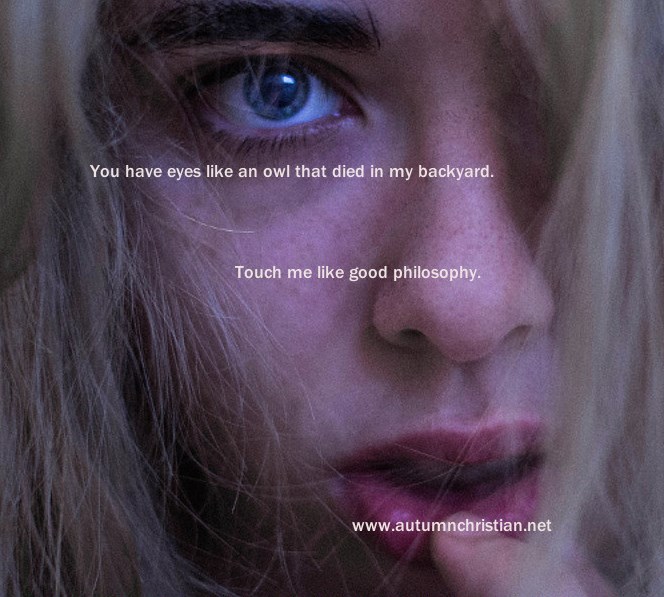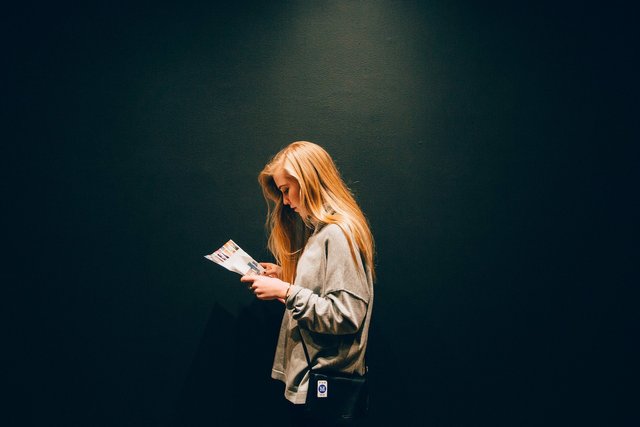Nine Things I Learned From Reading A Lot Of Books
Empathy is one of humanity’s greatest assets. The reason that we’re able to enjoy stories is because we can easily slip into the thoughts, motivations, and lives of other humans. The origin of the word “empathy” comes from an ancient Greek word, empatheia, which means passion or physical affection. Our understanding of other people inspires passion in us, emotion. Social animals like dogs are much more intelligent than solitary animals like cats, because they have to be built to understand others. Our empathy is partially what makes us intelligent, and allows us to build society in the first place, because we can actually see other people. When you read a book, you’re empathizing, feeling passion for the characters. You’re strengthening your ability to understand others, and thus, improving the human race.
We filter our view of the world through our subjective experience. Nobody gets the same experience reading the same book, even though the words remain the same. Although reality itself does not change, our perception of it can. We fuse words and experiences with the flavor of our opinions and memories. That means we can change how we view reality based on new input data. That may sound simple, but it’s an extraordinary power that we as humans possess. Maybe you hate a particular character because they remind you of a cousin who used to bully you. However, later in the book their backstory is revealed which brings that character into a new light - maybe their mother died of cancer, or their father bullied them and that’s all they know. Your perception of this character then changes, even though the character hasn’t, because new information has been brought to life. In turn, this changes the way you see your hated cousin. Your cousin may still a bully, but your perception of their behavior has changed.
We all have inner worlds. Private inner worlds that nobody else can ever see or touch, except indirectly. Rich inner worlds full of exploding starstuff, dreams, nightmares, wishes, desires, fantasies, shadows of people we used to know or may never know. We build elaborate Our brains are only about three pounds in weight, but they contain. And because of the way our brains work, these worlds are endless. Like the infinity of the universe, we can forever build new scenarios and sensations. These are the inner worlds that fuel the books that human write. And so we’ll never run out of books to read.
Many of those inner worlds are full of fucked up shit, but that doesn’t make that person depraved. I think people who don’t read or write sometimes have a difficult time understanding that most of humanity has evil thoughts. Neurons fire off in the basal ganglia and we oftentimes can’t control what we think. Many of us think about impulsively jumping off of bridges or stabbing a co-worker who chews too loudly. Books are a way to explore dark urges and thoughts, and even see the humor in the depths of our inbuilt depravities. And the more you read, the more you realize that these inner depths give us an intrinsic ability to act horribly, but is rarely expressed.
The depth and richness of human experience is the ultimate entertainment device. Humans are navel-gazing creatures, but that isn’t really a bad thing. It’s how we learn about our species, and continue our survival. We are entertained by ourselves, and by others who are like ourselves. The definition of a story cannot exist without a character. And the character, except for rare instances, is human or anthropomorphized. Even when the story is from the perspective of a dog or rabbit, we’re entertained by the things that animal does that we can relate to. We read books to see ourselves, and understand ourselves, and be entertained by the strange thing that we are. That’s why there are no successful fiction stories about inert rocks, or a sunrise. It’s not us, and there’s no action we can relate to, so it’s boring to us.
What you consume shapes who you become. Reading doesn’t make you smart or knowledgeable. Reading smart books makes you smart. If you want to have a greater breadth of knowledge, you need to read in a varied way. Book snobbery can limit your scope of perspective, and fear of reading something too challenging can make you a literary anemic if you avoid certain books. And it’s not just what you read, but how you read it, that shapes you. If you read passively, without questioning the text in front of you, it won’t enable you to form your own passions and opinions. But if you read voraciously, with a curiosity and a skepticism (You can also learn how to read like this by reading books about this topic), then it will teach you about what interests and ignites you, and what you should outright reject.
Reading books teaches you patience, and gives you power. I know this has said before a million times, but when you read you have to actively work to imagine what is going on. And it can take several hours or days to read a book, which requires you to learn how to sustain attention. This takes a patience, but also a willful deliberation to turn away from distraction, plug into the book, and feed your brain words that you must transform into images. And after enough practice, this inner strength and resolve improves over time, and carries over into other areas that require focus.
I never have to be bored. When I was a child I’d carry a book around with me wherever I went, often several books with me, for it was almost unbearable to be bored. I’d read when I was eating dinner or in the bathtub, much to the chagrin of anyone trying to get my attention. As I got older and it became less socially acceptable to read books all the time, I stopped, but I still kept up the habit of having one near by at all times. Now thanks to ebooks and the Internet I hardly ever have to worry about running out of things to read. I’ve found things now that entertain me outside of books, but it was books that made me realize I am the arbiter of my own entertainment. It’s my responsibility to find fun and enjoyment in things, not the world’s to provide it for me. And when I plug into a book,and begin to ride the wave of the story, I realize just how much depth and richness I can find inside interior spaces.
Objects aren’t important, it’s your thoughts and memories that are important. I lost most of my books when I was younger, and that’s happened to me several times over my adult life. I know there are many readers who cherish the physicality of books - their smell and their weight - and keep them as collections. But losing all my books made me realize it wasn’t the books themselves that were important, but what they gave me, and what I still keep, inside my head. Now, most of my books are in digital format, but I’m not losing much when I lose the physical object. (At least, if I’ve already read the book.)

Follow me on twitter, facebook, or on my website. You can also buy my books here
Stock photo from Pixabay
Self portrait by me canon t51
Some of my other posts you may be interested in:
[Short Story] CrystalMouth: An Excerpt from My Book Ecstatic Inferno
[Short Story] The Azalea Girl and Her Paingod
[Fictional Memoir] In The Palace of Bones & Champagne
How to Have Fun Writing Again
[Journal] How I Broke Through The Barrier of Dreams // Cognitive and Disassociation Techniques
[Short Story] You Don't Get To Fall In Love

As a book reviewer for publishing houses I get free paperbacks and hardcovers all the time. I get random emails from the publicists and when they ask about format I always say the truth. I am more likely to get to it if I see it on the end table than if it's lost inside my kindle among 5,000+ other books. That said, I have cut way back in recent years on the amount I can read so Instead of getting 200 books a year now I only get 12-15 books a year. Here are a few I got in June this year.
A paperback review copy definitely stands out, and it's easy to get lost in kindle clutter. What genres do you prefer to review?
Historical fiction is my favorite but it depends on the book. I read almost everything.
I love reading, so the title of this post drew me in. I think I'll be reading a lot more of your posts. Happy to connect.
sometimes empathy is a bad thing. especially in a competitive sociaty such as ours. Why ahould you care about other peoples lifeproblems, and yet you step in their shoes, although you shouldn't. i myself wnjoy reading, although sincerely consider it a waste of time, entartainment :) dortynately or not, one should be professional, not well-read :)
Extraordinary knowledge contained in the book @snowmachine .., much to read a book for all steemit friends ,, a person who has knowledge means he is in control of this world ..
Thanks, glad you enjoyed it @muhammadikbal
Good story and nice to meet you.
Please follow me @patricksanlin and upvote. Thanks
@snowmachine, this is a wonderful post
Well done post thanks for sharing
Reading books has changed my perspetive about life, i have trusted in friends over time and they have failed me so many times with their wrong advice, but with ma books, i can never go wrong
very nice post. Thank you for sharing your idea~
I'd like to add that the value of community, in terms of lowering social isolation, having fun, and gaining and giving help when needed, comes through very strongly in my reading.